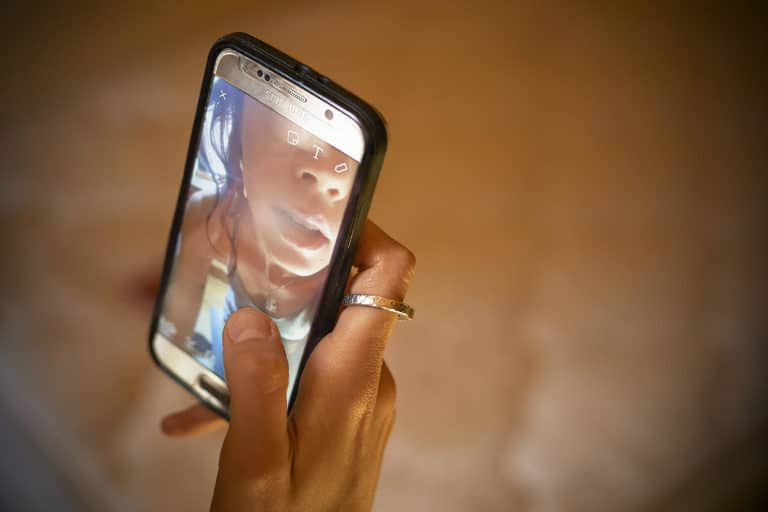
Opinion
Apple Screen Shame: impulses and how to handle them
By Ralph Pritchard
Opinion
Apple Screen Shame: impulses and how to handle them
By Ralph Pritchard
Published Sep 26, 2018 at 02:56 PM
Reading time: 3 minutes
Apps
Sep 26, 2018
There are some things we would rather not know. To stare trance-like at a social media news feed, awaiting shallow nudges of approval, is seen as tragic and shameful. Yet this condition is already commonplace. In the culture of internet addiction, abstinence is far more novel than immersion. Well, they say the first stage of recovery is to accept you have a problem…
Last Tuesday I updated my iPhone to iOS 12. With the help of Apple’s new Screen Time feature, I discovered that I pick up my phone an average of 148 times a day. My most used app is Instagram which I use for 52 minutes a day. I have now set myself an App Limit on Instagram, barring me from the app if my daily usage exceeds 1 hour. I got a five-minute warning just now actually, which prompted me to return to editing this article!
When I shared these stats on Instagram (aptly) many friends expressed fears that their own stats would be just as bad or worse and were worried about uncovering the scale of their compulsions.
Of course, this information could have been revealed to us many updates ago. So why did Apple do this now, and what’s in it for them? Unlike Facebook and Google, Apple primarily ships hardware, so it doesn’t rely on the clicks generated by advertising revenue. On several occasions CEO Tim Cook has taken the moral high ground on issues such as privacy where his Facebook counterpart Mark Zuckerberg has lost public trust—the Cambridge Analytica scandal is no exception. Meanwhile sociologists have been spilling ink on internet addiction long enough for it to have entered the public consciousness, and Apple’s humane veneer is bolstered by the company’s active role in that conversation.
What interests me, both as an artist and as a phone user, is how these usage patterns have affected our thought processes and creativity. Once I had uncovered my Screen Time data I couldn’t stop thinking about the neural impulse that guides my hands to my device 148 times in a 24 hour period. It happens without any conscious thought. Before I’ve made a decision I’m already scrolling.
What am I hoping for socially when I reach for that phone? The sharing compulsion seems hard-wired into my thoughts. I walk the streets, my hand hovering safely beside my left jeans pocket, while fresh thoughts and observations find their form as potential messages or Insta Stories, before I’ve even had time to edit or reflect on them.
The impulse of the artist to share their world with an audience is well-understood. The life of an artist can be lonely and full of creative struggle. Days are spent wrestling an indescribable feeling into an articulate, impactful form. But what happens when that struggle can be bypassed? I have often posted passing thoughts, barely edited, only to archive them hours or even moments later when the whim has diminished. This process feels true to the ephemeral nature of thoughts and true to the increasingly necessary practice of mindfulness. But what is the most healthy way to handle this emotional cognitive detritus?
We are quick to associate our online actions with our identity, to the point where criticism feels instantly personal. But realistically, I wouldn’t want my passing thoughts to be held as representative of me. I need platforms which mirror the fluidity and transience of my own impulses. Younger users are increasingly keeping a ‘9 or below’ policy with posts on their Instagram profiles, systematically deleting content that has lost urgency. I feel this approach is more healthy and I hope platforms will respond to it.
I do resent Apple for dropping this bombshell on us so late in the day. For over a decade it has, along with Facebook and Google, uncritically forced upon us a means of communication that plays on our deepest fears and desires. Only now are we being shown the damage. Perhaps the harshest truth is that a lot of our screen time is idle, spent in expectation. Once distracted, it can be hard to shift our attention and concentrate. And, in the spirit of Silicon Valley entrepreneurialism, it’s on us to strive towards rehabilitation.
My recommendation to fellow phone addicts wary of catching their digital reflection is to avoid feelings of shame. Remind yourself that the world of work, our social life, and the culture industry are all tightly bound up with our devices. We can’t blame ourselves for trying to get by. However, with this new information, we can be wiser with our boundaries, and notice when we’re simply hanging on the telephone.




